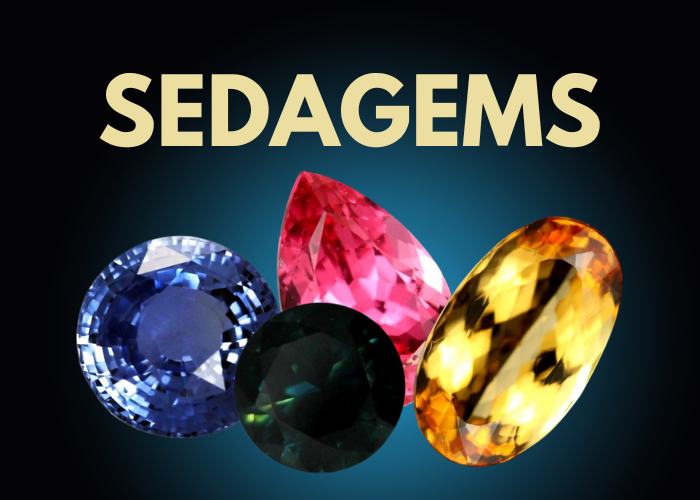您尚未參與本次拍賣。
22.24 CTS ALEXANDRITE - SPECIMEN FROM TANZANIA [S-SAFE259]
- 存貨單位
- 尺寸(毫米)
- 15.000 x 13.000 x 10.000mm
- 重量 (cts)
- 22.240
- 類型
- Specimen
- 顏色
-
ALEXANDRITE SPECIMEN
This is a natural untreated Alexandrite specimen from Tanzania which i bought from the miner on my last trip there. They are not suitable for faceting but can be cabbed or kept as a specimen.
The most sensational feature about this stone, however, is its surprising ability to change its colour. Green or bluish-green in daylight, alexandrite turns a soft shade of red, purplish-red or raspberry red in incandescent light. This unique optical characteristic makes it one of the most valuable gemstones of all, especially in fine qualities.
Alexandrite is very scarce: this is due to its chemical composition. It is basically a chrysoberyl, a mineral consisting of colourless or yellow transparent chrysoberyl, chrysoberyl cat’s eye and colour-changing alexandrite (also in cat’s eye varieties). It differs from other chrysoberyls in that it not only contains iron and titanium, but also chromium as a major impurity. And it is this very element which accounts for the spectacular colour change. Rarely, vanadium may also play a part. According to CIBJO nomenclature, only chrysoberyls displaying a distinct change of colour may be termed alexandrite.
Like many other gemstones, alexandrite emerged millions of years ago in a metamorphic environment. But unlike many others, its formation required specific geological conditions. The chemical elements beryllium (a major constituent in chrysoberyl) and chromium (the colouring agent in alexandrite) have contrasting chemical characteristics and do not as a rule occur together, usually being found in contrasting rock types. Not only has Nature brought these contrasting rock types into contact with each other, but a lack of the chemical element silica (the second most common element in the Earth’s crust) is also required to prevent the growth of emerald. This geological scenario has occurred only rarely in the Earth’s history and, as a result, alexandrite crystals are very scarce indeed.
- 存貨單位
- 尺寸(毫米)
- 15.000 x 13.000 x 10.000 mm
- 重量 (cts)
- 22.240
- 類型
- Specimen
- 顏色
-
ALEXANDRITE SPECIMEN
This is a natural untreated Alexandrite specimen from Tanzania which i bought from the miner on my last trip there. They are not suitable for faceting but can be cabbed or kept as a specimen.
The most sensational feature about this stone, however, is its surprising ability to change its colour. Green or bluish-green in daylight, alexandrite turns a soft shade of red, purplish-red or raspberry red in incandescent light. This unique optical characteristic makes it one of the most valuable gemstones of all, especially in fine qualities.
Alexandrite is very scarce: this is due to its chemical composition. It is basically a chrysoberyl, a mineral consisting of colourless or yellow transparent chrysoberyl, chrysoberyl cat’s eye and colour-changing alexandrite (also in cat’s eye varieties). It differs from other chrysoberyls in that it not only contains iron and titanium, but also chromium as a major impurity. And it is this very element which accounts for the spectacular colour change. Rarely, vanadium may also play a part. According to CIBJO nomenclature, only chrysoberyls displaying a distinct change of colour may be termed alexandrite.
Like many other gemstones, alexandrite emerged millions of years ago in a metamorphic environment. But unlike many others, its formation required specific geological conditions. The chemical elements beryllium (a major constituent in chrysoberyl) and chromium (the colouring agent in alexandrite) have contrasting chemical characteristics and do not as a rule occur together, usually being found in contrasting rock types. Not only has Nature brought these contrasting rock types into contact with each other, but a lack of the chemical element silica (the second most common element in the Earth’s crust) is also required to prevent the growth of emerald. This geological scenario has occurred only rarely in the Earth’s history and, as a result, alexandrite crystals are very scarce indeed.
| 運輸商 | 運送至:國家 | 運送到世界其他地區 |
|---|---|---|
| FedEx | $12.00 / :幾天天 | $39.00 / :幾天天 |
|
:國家
FedEx訂單折扣為$12.00 2或更多商品
世界其他地區
FedEx訂單折扣為$39.00 2或更多商品
|
||
| Registered Shipping | $9.00 / :幾天天 | $16.00 / :幾天天 |
|
:國家
Registered Shipping訂單折扣為$9.00 2或更多商品
世界其他地區
Registered Shipping訂單折扣為$16.00 2或更多商品
|
||
-
 積極的
積極的Paid and shipped - no feedback left after 100 days
-
 積極的
積極的Very special item, rare. Thanks an Happy New Year from Germany.
-
 積極的
積極的Beautiful stone, perfect packaging, fast shipment, recommendable seller.
-
 積極的
積極的Incredible stone, never seen before. Thank you from Germany. Will order again Dr. Rainer (medical doctor from Duisburg/Germany)
-
 積極的
積極的Nice stone, perfect packaging, fast shipping, recommendable.
-
 積極的
積極的Beautiful small mini, thanks and a good and healthy 2025.
為什麼用戶出價高於自己?
出價時,這是一個人願意為產品出價的最高金額。然後,我們的系統將自動代表投標人出價,逐步將出價提高到最高價,以保持其最高出價者的地位。
當出現「自動出價」圖示時,表示我們的系統正在根據投標者的最高出價主動為其出價。這可能看起來好像出價者出價高於自己,但這只是系統更新出價以反映出價者最高限額的結果。





![22.24 CTS ALEXANDRITE - SPECIMEN FROM TANZANIA [S-SAFE259]](https://liveplatforms-production.b-cdn.net/tenants/gr/uploads/images/860000-864999/862320/5c3580980cccc.jpg?width=480&aspect_ratio=1001%3A1000)
![44.45 CTS FIRE AGATE NATURAL SPECIMEN [MGW5613]](https://liveplatforms-production.b-cdn.net/tenants/gr/uploads/images/1135000-1139999/1137304/5e55d98bec082.jpg?width=480&aspect_ratio=1001%3A1000)
![173.20 CTS AMETHYST CHOCOLATE SPECIMEN [MGW4114]](https://liveplatforms-production.b-cdn.net/tenants/gr/uploads/images/395000-399999/398510/52cf8c692d487.JPG?width=480&aspect_ratio=1001%3A1000)
![66 CTS TOURMALINE MUSHROOM SPECIMEN BURMA [MGW2471]](https://liveplatforms-production.b-cdn.net/tenants/gr/uploads/images/305000-309999/306719/306719_1351580779.jpg?width=480&aspect_ratio=1001%3A1000)
![35.50 CTS LEPIDOLITE SPECIMEN FROM BRAZIL - [MGW2097]](https://liveplatforms-production.b-cdn.net/tenants/gr/uploads/images/280000-284999/281088/281088_1341207258.jpg?width=480&aspect_ratio=1001%3A1000)






![4.2 mm Round 1 pcs 0.30 cts Orange Sapphire [VVS]](https://liveplatforms-production.b-cdn.net/tenants/gr/uploads/images/2275000-2279999/2279288/863389b3-7388-4f6f-9bf4-f9c7b0de9446.jpg?width=480&aspect_ratio=1001%3A1000)